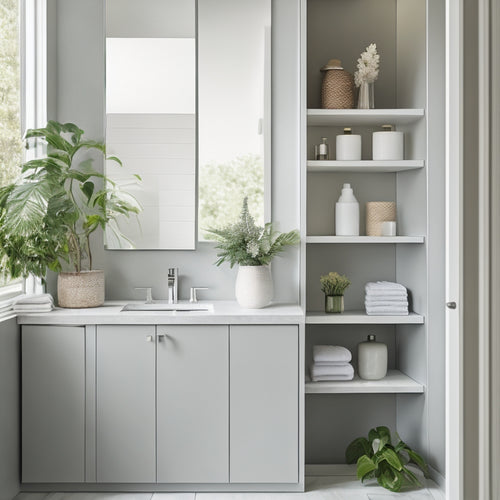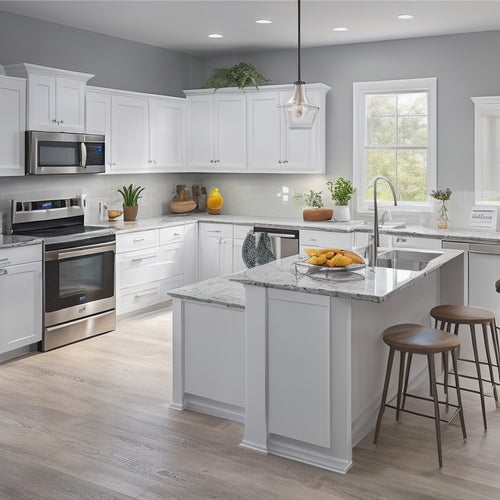
Campus Regulations: Rules and Consequences Unveiled
Share
Campus regulations are designed to foster a positive and inclusive community, ensuring students' safety, well-being, and respect. The Code of Conduct emphasizes responsible behavior, while Substance Abuse Policies prohibit illegal drugs and promote a healthy environment. Non-compliance consequences range from fines to expulsion, with serious offenses resulting in severe penalties. Safety and Security Rules protect students and university property, and Residential Conduct Guidelines uphold the Residential Code of Conduct. By understanding these regulations, students can maintain a safe and respectful living environment. Further exploration of these policies reveals a thorough framework for a secure and successful academic experience.
Key Takeaways
• The Residential Code of Conduct outlines guidelines for student behavior in residence halls, emphasizing respect, responsibility, and community building.
• Strict policies prohibit illegal drugs, cannabis, and drug paraphernalia, with an emphasis on prevention, education, and seeking help.
• Failure to comply with campus regulations results in fines, restitution, disciplinary action, and potentially serious consequences, including suspension or expulsion.
• Safety and security rules protect students, staff, and university property, with regulations in place for emergency preparedness, access control, and CCTV cameras.
• Non-compliance consequences range from counseling to expulsion, with repeat offenders facing more severe penalties and enforcement procedures holding students accountable.
Code of Conduct Essentials
The Residential Code of Conduct outlines essential guidelines for student behavior, emphasizing the importance of responsible actions and respect for oneself and others within the residence halls. This code serves as a foundation for fostering a positive and inclusive community.
In the event of roommate conflicts, mediation is available to facilitate resolution and promote understanding. The code also encourages community building through organized events, which provide opportunities for socialization and connection among residents.
Substance Abuse Policies
In accordance with federal and state laws, the university has established stringent substance abuse policies to guarantee a safe and healthy environment for all residents. These policies strictly prohibit the possession, use, and distribution of illegal drugs, cannabis, and drug paraphernalia on campus.
Moreover, the university emphasizes drug prevention and substance education through various programs and resources. Students are encouraged to seek help and support if they struggle with substance abuse.
The university's substance abuse policies are designed to promote a healthy and secure living environment, and students are expected to comply with these regulations. By doing so, the university aims to foster a community that values well-being, respect, and responsibility.
Non-Compliance Consequences
Failure to comply with university regulations and policies, including those related to substance abuse, will result in severe consequences, ranging from fines and restitution to disciplinary action, including suspension or expulsion from the university.
Non-compliance with university officials, forging documents, and making false statements are considered serious offenses. The enforcement procedures in place guarantee that students are held accountable for their actions. Disciplinary actions may include mandatory counseling, community service, or educational programs.
Repeat offenders may face more severe penalties, including suspension or expulsion. It is essential for students to understand the consequences of non-compliance and adhere to university regulations to maintain a safe and respectful campus environment.
Safety and Security Rules
Campus safety and security regulations are in place to protect students, staff, and university property, and it is important that residents understand and adhere to these rules to prevent hazards and maintain a secure living environment. To guarantee emergency preparedness, residents must familiarize themselves with evacuation procedures, fire alarm protocols, and emergency exit routes. Additionally, security measures such as CCTV cameras, access control systems, and patrols are in place to deter criminal activity and ensure a safe living environment.
| Security Measure | Purpose | Effectiveness |
|---|---|---|
| CCTV Cameras | Deter criminal activity | High |
| Access Control Systems | Restrict unauthorized access | Medium |
| Patrols | Enhance visibility and response | High |
Residential Conduct Guidelines
All residential students are expected to uphold the Residential Code of Conduct, a comprehensive set of guidelines outlining acceptable behavior and prohibited actions within the residence halls. This code guarantees a safe and respectful living environment, promoting academic success and personal growth.
Roommate conflicts are addressed through mediation and open communication, while community events foster a sense of belonging and community. The code prohibits underage drinking, drug possession, and non-compliance with university officials. It also emphasizes health, safety, and security, banning hazardous activities, tampering with fire alarms, and possession of prohibited items.
Frequently Asked Questions
What Happens if I'm Caught With a Fake ID in the Residence Halls?
If caught with a fake ID in the residence halls, you may face ID consequences, including disciplinary action, fines, and legal ramifications, as forging documents and making false statements are strictly prohibited and considered non-compliant behavior.
Can I Have Guests Over if They're Not University Students?
Regarding guest privileges, residents may host visitors, including non-university students, with prior approval and adherence to visitor etiquette, ensuring respect for roommates, common areas, and residential code of conduct guidelines.
How Do I Report a Violation of the Residential Code of Conduct?
To report a Code Violation, residents should follow the Incident Reporting protocol outlined in the Resident Student Handbook, ensuring timely and accurate documentation of the incident to facilitate prompt resolution and maintain a safe living environment.
Are There Any Exceptions to the Quiet Hours Policy in the Residence Halls?
Exceptions to quiet hours policy in residence halls include designated Study Break periods and Extended Hours during finals week, allowing for focused academic preparation and collaboration among residents.
Can I Appeal a Decision Made by the Residential Conduct Board?
Like a beacon in the darkness, the appeal process shines a light on ensuring decision fairness, allowing students to navigate the residential conduct board's verdict through a formal, structured process, guaranteeing a fair and impartial review.
Related Posts
-

Under-Sink Storage Solutions for Urban Living
Under-sink areas in urban apartments can change from cluttered voids into efficient storage havens with smart solutio...
-

Modern Bathroom Cabinetry for Small Bathrooms
When designing modern bathroom cabinetry for small spaces, your focus should be on maximizing storage while embracing...
-

Kitchen Remodeling Made Easy: Free Planning Tools
I'm excited to transform my kitchen into a stunning space, but I know that without a clear plan, my dream can quickly...


